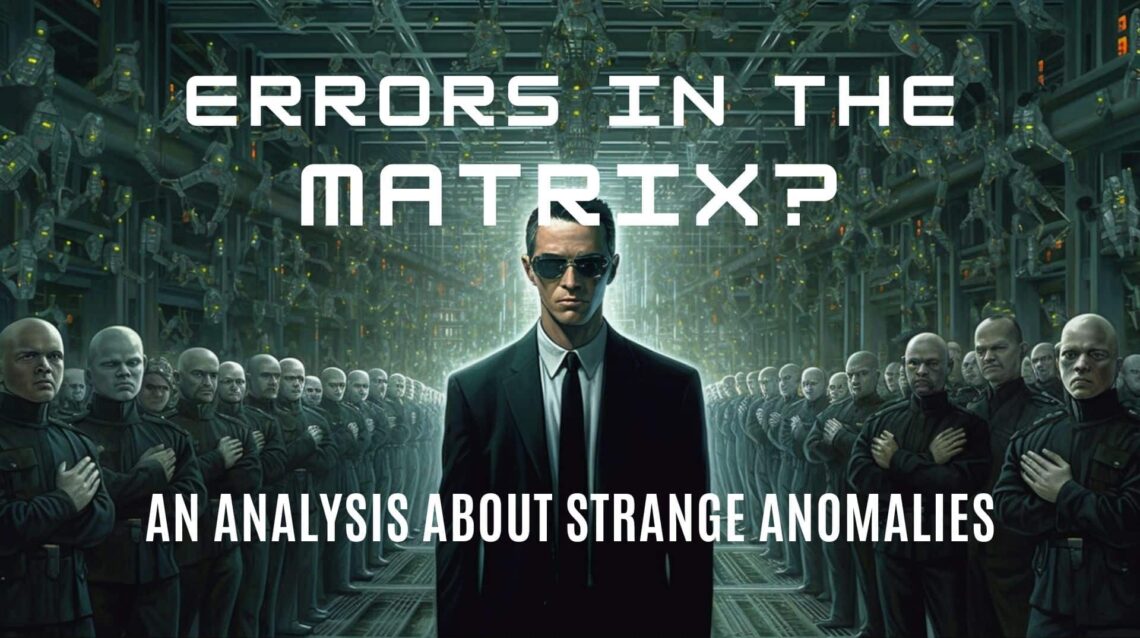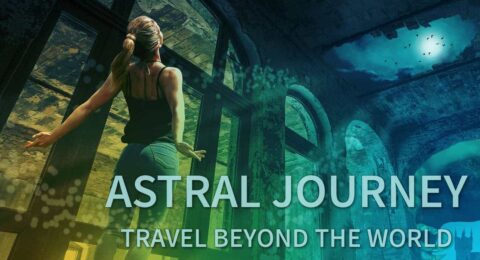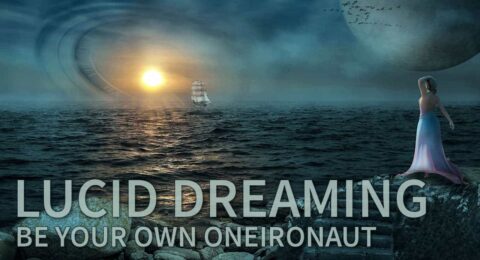
The Study of the Perplexing Errors in the Matrix
Errors in the Matrix – An Introduction to the Simulation Hypothesis
The Simulation Hypothesis is a fascinating concept that challenges the very foundations of our reality. It states that the world we live in is merely a simulation created by an advanced civilization… but there are errors in the matrix.
This concept has attracted increasing attention in recent years as more and more people wonder if it is possible that we actually live in a simulated world. “Errors in the matrix” play a special role in this, involving unexplained phenomena that might indicate that our reality is not as real as we think.
The idea that we might be living in a simulation is not new, but it has gained prominence with the advent of computer technologies and artificial intelligence. The simulation hypothesis raises fundamental questions about the nature of our existence and has both scientific and philosophical implications. In this article, we will explore the simulation hypothesis in more detail, examine the intriguing “error in the matrix,” and consider the scientific and philosophical aspects of this concept.
The concept of the “Error in the Matrix”
A “flaw in the matrix” refers to an unexplained event or phenomenon that may indicate that our reality is actually a simulation. These errors can manifest themselves in various forms, such as inconsistencies in physics, time distortions, or strange coincidences. The term “errors in the matrix” comes from the 1999 science fiction film The Matrix, in which the main character Neo discovers that his world is just a computer simulation controlled by an artificial intelligence.
Matrix anomalies are fascinating because they open up the possibility that our understanding of reality is incomplete or even wrong. If there are indeed anomalies that suggest we are living in a simulation, it challenges our notions of the nature of the universe and forces us to rethink the fundamental principles of our existence.
Famous Matrix disturbances and anomalies
There are numerous examples of supposed “faults in the matrix” that have been documented over time. Some of these are widespread and considered classic examples of matrix faults, while others are less well known. The following are some of the best known examples:
The Mandela Effect Phenomenon: Named after South African President Nelson Mandela, this phenomenon refers to collective false memories where large groups of people remember events or facts that never actually happened. Some believe that the Mandela effect may be an indication of errors in the matrix where our collective memories have been manipulated or altered.
Déjà vu Experiences
Many people occasionally feel that they have already experienced a situation or event, even though they are certain that this is not the case. Some believe that a déjà vu may indicate errors in the matrix where our memories of the simulation have become confused.
Time distortions and missing time: there are reports of people suddenly finding that they have “lost” a stretch of time without being able to explain how this happened. These experiences could indicate errors in the matrix where the simulation was temporarily interrupted or altered.
Impossible coincidences: Sometimes inexplicable coincidences occur in our lives that are so unlikely that they can hardly be attributed to coincidence. These events could indicate that our reality is controlled by a higher power that is able to manipulate the simulation at will.
Errors are observed again and again, such as several people in a restaurant or bus wearing the same sweater.
There are places in the world where rocks wander or objects are thrown into a ravine, which then float in the air for a while or come flying back.
The Science behind Simulation Theory
The simulation hypothesis has also gained prominence in scientific circles in recent years. One of the best-known proponents of the theory is Swedish philosopher Nick Bostrom, who published an influential paper in 2003 titled “Are You Living in a Computer Simulation?” In this paper, Bostrom argues that it is more likely that we are living in a simulation than not, and presents a number of arguments to support this claim.
One of Bostrom’s main arguments is that it is very likely that a technologically advanced civilization would be able to create a simulation on such a large scale as we are experiencing today. This is based on the assumption that technological development is exponential and that it is only a matter of time before a civilization is able to develop such powerful computers and artificial intelligences that would enable such a simulation.
Furthermore, there are many scientific anomalies and phenomena that could indicate that we are living in a simulation. For example, quantum physics has brought to light many strange and unexplainable phenomena that could indicate a “programmed” reality. One of these phenomena is the so-called “double-slit” experiment, in which light particles behave both as waves and as particles, depending on whether they are observed or not. This behavior contradicts our intuition and may suggest that our reality is controlled at a deeper level by some kind of “program.”
Philosophical perspectives on Life in a Simulation
The simulation hypothesis also raises a number of philosophical questions that have profound implications for our understanding of reality and human existence. If we are indeed living in a simulation, what does this mean for our understanding of ourselves as human beings and for our understanding of our environment? Some philosophers argue that this would mean that we have no absolute control over our lives and that everything we experience is predetermined. Other philosophers believe that living in a simulation allows us to influence and shape our reality because we are aware that we are part of a simulation.
Another important philosophical issue that arises from the simulation hypothesis is the question of consciousness. If our reality is indeed a simulation, what does that mean for our understanding of consciousness and free will? Some philosophers argue that consciousness and free will can exist in a simulated world, while others argue that these concepts are not meaningful in a simulated world.
The role of Technology in the Simulation Hypothesis
The simulation hypothesis is closely related to technology, as it is based on the assumption that a technologically advanced civilization would be able to create a simulation of such a large scale. However, there are also many questions and controversies related to the role of technology in the simulation hypothesis.
One important aspect is whether it is even possible to create a simulation of such large scale. Some experts believe that it is impossible to create a complete simulation due to the complexity and unpredictability of our universe. However, others argue that it is only a matter of time and technological advances. Moreover, they argue, it could be assumed that a civilization thousands of years ahead of ours could easily create a matrix in which we live, for example.
An important aspect is the question whether it is even possible to create a simulation of such a large scale. Some experts believe that it is impossible to create a complete simulation due to the complexity and unpredictability of our universe. However, others argue that it is only a matter of time and technological advances. Moreover, they argue, it could be assumed that a civilization thousands of years ahead of ours could easily create a matrix in which we live, for example.
Another important issue is the question of the ethics of simulation. If it is indeed possible to create a complete simulation, what does that mean for our moral obligations to the simulated beings? Are we responsible for their welfare and freedom, or can we simply consider them a “program”? These and many other questions demonstrate the complexities and controversies associated with the simulation hypothesis.
Debates and controversies surrounding the Simulation Hypothesis
The simulation hypothesis is a controversial concept that has generated much debate and controversy. Some experts believe that the hypothesis is unscientific and nonsensical, while others claim that it is entirely possible that we are living in a simulation.
Some of the most common criticisms of the simulation hypothesis are that it is not falsifiable to scientific measurements and measuring devices, and therefore is not considered a scientific theory in the first place. A weak approach, considering that if you can’t measure something, it simply must not exist. They believe that the hypothesis contains too many assumptions and speculations, and that there is no scientific evidence to suggest that we are actually living in a simulation.
Despite these criticisms, however, there are also many proponents of the simulation hypothesis who believe that it is entirely possible that we live in a simulated world – even Elon Musk is a supporter of the simulation theory. Some experts argue that the hypothesis is useful for expanding our understanding of the world and raising new questions that force us to rethink our basic assumptions and beliefs.
Implications of living in a simulated World
If we are indeed living in a simulation, it could have profound implications for our understanding of ourselves, our environment, and our future. Some experts argue that living in a simulated world would mean that we have the ability to consciously shape and influence our reality, while others believe that we would have no control over our destiny in such a world.
Another important topic is the question of spirituality and the meaning of life. If our reality is indeed a simulation, what does that mean for our understanding of God, the universe, and our role in the world? Some experts believe that the simulation hypothesis gives us the opportunity to broaden and deepen our spiritual beliefs, while others claim that it would destroy our ideas about God and the world.
The possibility of stepping out of the Matrix
One of the most intriguing ideas associated with the simulation hypothesis is the possibility of stepping out of the matrix. In the science fiction world of the movie “The Matrix”, the main character Neo can actually step out of the simulated world and learn the truth about his existence. As an analogy, this is very reminiscent of Plato’s Allegory of the Cave.
Although it is unlikely that we can actually step out of the simulated world, there are many ways in which we can expand and deepen our understanding of reality. This could be through meditation, spiritual practices, or even expanding our technological capabilities.
Conclusion: Are we living in a simulation?
The simulation hypothesis is a fascinating concept that forces us to rethink our fundamental assumptions and beliefs about the nature of reality. Although there is much controversy and debate associated with the hypothesis, there are also many experts who believe that it is entirely possible that we are living in a simulated world.
But based on the present errors in the matrix, the suspicion is that the Earth – and perhaps even the entire universe – represents a gigantic game, an incredibly gigantic matrix with infinite possibilities. A world, as most people believe in it, supported by classical natural sciences, should in no case show errors in the matrix. Also not then, if is argued here with coincidental events, because many “coincidences” are so improbable that one can hardly calculate them.
Recommended:
Blog Post: “Are we living in a Simulation?”
Blog Post: “Elon Musk says: We are living in a Simulation!”
The Matrixxer on Youtube support the Simulation Theory






